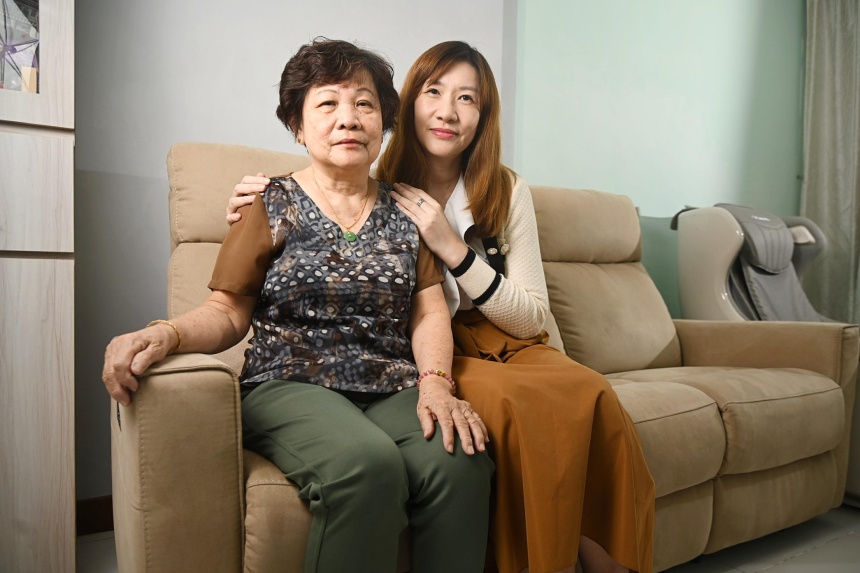Over 230,000 older S’poreans have chosen someone to act on their behalf if they lose mental capacity


SINGAPORE – About 56,000 Singaporeans aged 50 and older have drawn up a lasting power of attorney (LPA) since the Government launched a campaign in July 2023 to encourage legacy planning.
In total, 233,000 Singaporeans in this age group have completed an LPA, said Mr Eric Chua, Senior Parliamentary Secretary for Social and Family Development, at an appreciation event for volunteers and partners involved in the campaign on Oct 25.
The campaign is “well on track” to exceed its target of having 240,000 Singaporeans make their LPAs by the end of 2025, he added.
The LPA is a legal document that allows an individual to appoint another person to make decisions on his behalf if he becomes mentally incapacitated, for example, through dementia.
Legacy planning involves individuals stating and communicating their preferences and decisions on their care and finances, for example, to their loved ones, if they die or lose mental capacity.
This is done through tools such as the LPA, a will, Central Provident Fund nomination and an advance care plan. An advance care plan documents a person’s values and healthcare preferences, which will guide the healthcare team and the person’s loved ones in making decisions in their best interest if they lose mental capacity.
In the 15 months since the campaign started in July 2023, more than 13,000 advance care plans were also made, bringing the total number of such plans made to more than 50,000. The campaign is organised by the Ministry of Social and Family Development (MSF), the Ministry of Health, the Agency for Integrated Care and the Public Service Division.
Mr Chua said there is still a need to bring about greater awareness, dispel misperceptions and normalise conversations about legacy planning.
The Straits Times understands that some people mistakenly believe that the cost of legacy planning is too high or that their next of kin automatically have the right to act on their behalf if they become mentally incapacitated.
This is because the majority of Singaporeans, including many seniors, have not done their LPA and advance care plans.
So the Government will continue to encourage Singaporeans to start thinking about such matters, including training professionals in the finance industry to share legacy planning tools with the public.
An MSF spokesperson told ST that there has been a “notable” rise in younger people registering an LPA in recent years.
When the LPA was introduced in 2010, only 2 per cent of applicants were under 50 years old. As at the end of September 2024, this rose to 24 per cent.
Besides greater awareness of legacy planning, more younger Singaporeans are caregivers to their elderly parents.
Some of these caregivers have faced challenges managing the affairs of their loved ones who did not make an LPA before they lost mental capacity. The caregivers might even have had to apply to the courts to act on behalf of the person.
So this could have spurred them to apply for an LPA to give themselves and their loved ones greater certainty, said the MSF spokesman.
More than 95 per cent of individuals chose family members to act on their behalf should they lose mental capacity, said the MSF spokesman.
Dr Sanjeev Shanker, 39, who is an emergency medicine specialist at HMI Medical Centre, also witnesses and certifies people’s LPA forms as an LPA certificate issuer.
He said accidents and illnesses that impair people’s ability to make and communicate their decisions are unpredictable, and they can happen to anyone, regardless of age.
He has seen this “more times than he would like at the accident and emergency department” when younger people meet with accidents, or have a heart attack or stroke.
Some of their families disagree on what they think the patient’s wishes are, leading to bitter arguments among family members, he said.
This is why younger people should start thinking about making an LPA, he said, as it ensures that they have someone they trust and who has a good understanding of their personal preferences to make important healthcare or property decisions on their behalf should the need arise.
He said: “This provides peace of mind, both for you and your loved ones.”
Mother of two Seline Cai, 40, was spurred by her uncle’s death in 2022 to start thinking about legacy planning.
The principal industry training officer and her mother helped to care for her uncle while he was ill, as he was estranged from his son and lived alone.
She said her uncle was “in and out” of hospital due to a heart condition in the months before his death, and that period of time was very trying for his caregivers.
He also did not give any instructions on matters such as his funeral or arrangements regarding his flat and tenant.
She said: “We felt very lost as he didn’t leave any instructions. So his death spurred me to think of getting my mum to do an LPA, and she is also more open to discussing such matters after his death.”
Ms Cai says it is also prudent for her mother to have legacy planning to avoid any potential conflict between her and her younger brother that could arise from care decisions.
So she and her mother made their LPAs in 2023. Her mother, Madam Chui Ah Loy, 74, also made a will.
Madam Chui said in Mandarin: “I don’t want to give my children more trouble should anything happen to me. I also don’t want them to fight over such matters and affect their relationship, and so I feel it’s better if I do an LPA.”
Visit the MyLegacy@LifeSG website at go.gov.sg/planlegacytoday to learn more about legacy planning.
Join ST's WhatsApp Channel and get the latest news and must-reads.





No comments:
Post a Comment